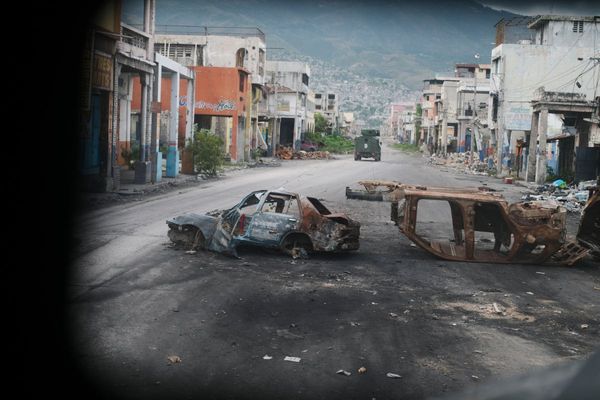Prime minister Anthony Albanese has released the proposed draft change to the constitution to recognise Indigenous Australians with a voice to parliament.
But what will Australians be asked at a referendum, and what do we still need to know about a voice?
What is constitutional recognition?
Recognising Indigenous Australians in the constitution is an idea that has gone through many iterations.
In 2007, the former Liberal prime minister, John Howard, proposed a symbolic preamble to the constitution to recognise the special place of Indigenous Australians as the first inhabitants of Australia.
The Rudd and Gillard governments set up an expert panel that in January 2012 recommended something more substantive: replacing the race power in the constitution with a new provision prohibiting racially discriminatory legislation.
In 2017 the Uluru statement from the heart, agreed by 250 Indigenous leaders after six months of consultation, asked for three things: a constitutionally enshrined voice to parliament; a Makarrata commission to supervise a process of agreement-making between governments and First Nations; and truth-telling.
What did Anthony Albanese propose?
On Saturday Albanese spoke at the Garma festival, revealing the proposed question for a referendum to recognise Indigenous Australians and the proposed alteration to the constitution.
The “starting point” is to add three sentences:
1. There shall be a body, to be called the Aboriginal and Torres Strait Islander Voice.
2. The Aboriginal and Torres Strait Islander Voice may make representations to parliament and the executive government on matters relating to Aboriginal and Torres Strait Islander peoples.
3. The parliament shall, subject to this constitution, have power to make laws with respect to the composition, functions, powers and procedures of the Aboriginal and Torres Strait Islander Voice.
At the referendum, Australians would then be asked:
Do you support an alteration to the constitution that establishes an Aboriginal and Torres Strait Islander Voice?
What does the Coalition say?
The opposition spokesperson on Indigenous Australians, Julian Leeser, said he supported the move to enshrine a voice in the constitution but wanted to see the detail of the question and the proposed reforms.
“We as a Coalition have an open mind about the issue of the voice that the government is putting forward, and we are awaiting the detail,” he said.
“This is a step today on that road, but we still want to know how the voice itself is going to operate.”
The Country Liberal senator, Jacinta Price, a Warlpiri woman, has been more strident, arguing in her first speech the government is “yet to demonstrate how this proposed voice will deliver practical outcomes and unite, rather than drive a wedge further between, Indigenous and non-Indigenous Australia”.
What detail already exists about the voice?
In July 2021, the Indigenous Voice Co-design Process, co-chaired Marcia Langton and Tom Calma, proposed voices at the local and regional, and the national level.
The national voice would be a “small body of Aboriginal and Torres Strait Islander members tasked to advise the Australian parliament and government” to ensure they “have a direct say on any national laws, policies and programs affecting them”.
The Australian parliament and government would be “‘obliged’ to ask the national voice for advice on a defined and limited number of proposed laws and policies that overwhelmingly affect Aboriginal and Torres Strait Islander peoples” while there would be an “expectation” to consult it on laws that “significantly” affect them.
It proposed “a 24-member model including five members representing remote regions, and one member representing the significant number of Torres Strait Islanders living on the mainland”.
The report also detailed consultation standards and transparency mechanisms for the voice.
Constitutional recognition and the design of the voice has also been the subject of two joint select committees in parliament, including one co-chaired by Leeser and Labor’s Patrick Dodson.
When will the referendum happen?
The Albanese government has committed to take the voice proposal to a referendum in this term of parliament, which could be held as early as mid to late 2023.
In April the Uluru statement leadership launched a campaign ahead of the federal election calling for the voice referendum to occur on 27 January 2024, the “day after Invasion day/Australia day”, or 27 May 2023.
The latter date is the 56th anniversary of the successful 1967 referendum, which allowed the commonwealth to make laws for Indigenous people and count them in the census, and also the sixth anniversary of the Uluru statement.
What happens now?
Since the parliament would have the power to set the “composition, functions, powers and procedures” of the voice, the question now is: what level of detail will the Albanese government give about these before the referendum?
On Friday, Langton said the structure of the voice had been “investigated to the point where there is nothing more we can say”.
She told Radio National:
When people say they want more detail, all that tells me is they refuse to read our report – because all that detail is there … I see this demand for more detail as mischief-making and sowing confusion … We couldn’t have been more clear than we have been … What we’ve set out in our report for a voice is very straightforward and clear, and is the preferred option of most Aboriginal and Torres Strait Islander people.”
On Sunday Albanese said the government won’t “go down the cul-de-sac of getting into every detail … because that is not a recipe for success”. On Monday, he told The Project “of course [voters] will know how it works” before the referendum.
The minister for Indigenous Australians, Linda Burney, indicated the body would be “representative” but more consultations would be needed about “the way in which a voice would be constituted”.
“I want to make sure that there is involvement and discussion not only with Indigenous leaders, not only across the parliament, but importantly with the Australian public, about what we should do going forward. It is not about the ‘what’ yet … it is about the ‘why’,” she told the ABC.







